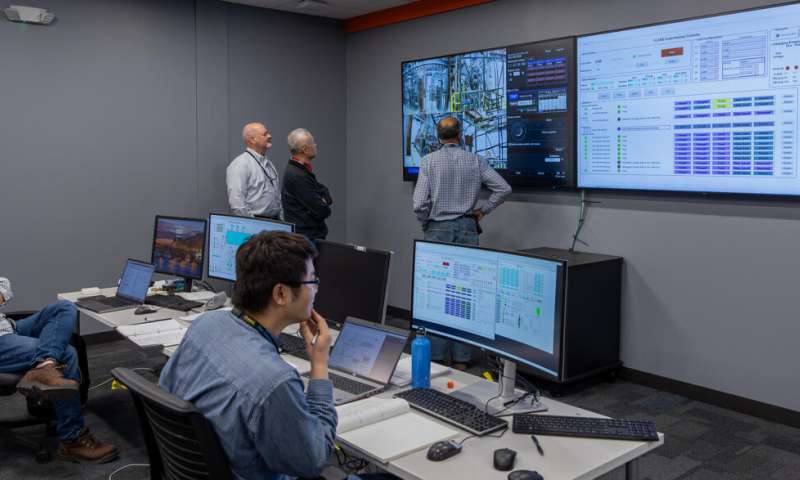FLARE Operations Officially Inaugurated: A Revolutionary Step in Understanding Magnetic Reconnection

PRINCETON, NEW JERSEY - The Princeton Plasma Physics Laboratory (PPPL) has officially inaugurated a revolutionary new facility, FLARE, which will revolutionize our understanding of magnetic reconnection. This cutting-edge research tool represents a major step forward in the study of astrophysical conditions and fusion energy.
Located at PPPL, FLARE is designed to mimic huge expanses of space by using advanced magnet technology to shrink the size of electrical currents flowing through a plasma. By leveraging this technique, scientists can conduct experiments that replicate the conditions found in outer space, providing unprecedented insights into the complex physics governing reconnection events.
"We are thrilled to officially open FLARE," said PPPL Director, Dr. Stuart PRAPPAS. "This innovative facility will enable us to push the boundaries of our knowledge, tackling fundamental questions in astrophysics and plasma science."
The FLARE experiment utilizes a novel technique that leverages high-energy pulses to create small reconnection sites on Earth, which can be compared to events observed in space. This approach allows scientists to study a phenomenon that has been difficult to simulate using only computer simulations.
"We can gather information that even spacecraft cannot provide," said Jongsoo Yoo, Deputy Head of Discovery Plasma Science and co-leader of the FLARE team. "We want to collaborate with experts from around the world to work on this cutting-edge research."
This is achieved through FLARE's collaborative nature, making it accessible to scientists worldwide who can submit research proposals and participate in experiments.
As a collaboration tool, FLARE aims to be more than just an experimental facility, but also a platform for fostering global scientific partnerships. By providing researchers with hands-on experience running the experiment, FLARE further enables data sharing and future projects that benefit from collaborative efforts.
The PPPL community is excited about this groundbreaking initiative as scientists can use FLARE to conduct extensive research programs designed to investigate key questions related to astrophysical conditions and plasma interactions.
